|
"Rejoice with those who rejoice, weep with those who weep." (Romans 12:15) From the earliest days, Christians have learned to hold very different aspects of life in tension. (Perhaps we are helped in this way of thinking by the mystery of the Incarnation: that in Jesus of Nazareth we see One who is both fully God and fully human, without conflating or confusing the two.)
This penchant for paradoxes also flows into our daily lives as well, shaping how we can navigate the changes and changes of our days. We can acknowledge and trust in the goodness of the Living God without minimizing human suffering. We can appreciate the rich complexity of life, without oversimplifying our experiences, or those of our neighbours. And as St. Paul reminds us in his letter to the Romans, sharing in God's new life, brought about through the death and resurrection of Jesus, means we are able to faithfully face both joys and pains of this life head on. There is real room in Christ's Church for us to both rejoice and to weep. Below are two links to articles that may help us think about the vital role of grief, especially in the light of all that has been happening in the world these days. The first is an article by Dr. Glenn Packiam, speaking from a Christian perspective about rediscovering the importance of lament. The second is an interview with author David Kessler, put out by Harvard Business Review back in late March, which helps make sense of a lot of the confusing feelings many of us are trying to navigate. I think their wisdom may shed some helpful light for us today.
0 Comments
Scripture Readings: Acts 2:14, 36-41 | Psalm 116:1-4, 12-19 | 1 Peter 1:17-23 | Luke 24:13-35
They said to each other, “Were not our hearts burning within us while he was talking to us on the road, while he was opening the scriptures to us?” Our Gospel passage today starts on a pretty low note: Two of Jesus’ followers were leaving Jerusalem. They were heartbroken by the sudden, cruel death of their beloved master, and confused by the strange, unbelievable story told by Mary Magdalene and the others. It was all too much… too disorienting, too overwhelming to take in. The horror of the cross still fresh in their minds… their hopes that Jesus was the Redeemer sent by God so visibly dashed and hung high for all to see… how could anything good come from all these ‘things that have taken place’. Their world was shattered, and they were going home, alone it seemed, to pick up the pieces. But then, we find they are not alone. A stranger shows up on the road and joins them on their journey, and when he asks they share with him their sorrowful story. After listening, we’re told, this stranger then begins to share a story with them. The same story, actually… one which also told about these horrible ‘things that have taken place’, but then suddenly, instead of a tragic failure and the end of all they’d hoped for, these ‘things’ were becoming the climax of the story of God’s redeeming love. The stranger, “beginning with Moses” and the very first Exodus… the grand rescue of the people of Israel from slavery in Egypt, “and all the prophets,” who shared the message of warning, yes, but also the message of hope that the Living God would ultimately end Israel’s sufferings, and rescue them again from their enemies and their sins… the stranger unpacks God’s Story for them, helping them see that the Messiah, the Chosen One, had to “suffer these things… and then… enter into his glory.” It was a story they had heard the pieces of probably hundreds of times before, but now this stranger was putting the pieces together again in a whole new way; helping them to see a unity and purpose, which had always been there, but which until that very moment they had not recognized. Listening to him, their peoples’ Scripture Story was connecting with their own, and their hearts began to burn with a new sense of hope and expectation. By the time they had reached the village, they were not ready to say goodbye to the stranger. They urged him to join them for dinner, and to spend the night as well. They opened up their home to him and invited him to stay with them, and found as they did so that their whole world was about to be upended again, this time for good. As they sit down and share a simple meal, this stranger took the bread… he blessed it, and broke it, and gave it to them. Suddenly they recognize Him! Suddenly they see! It’s Jesus, their beloved Master, now living once again! All this time He had been with them, but now He’s made His presence known! And then, just like that, He vanishes right before their eyes. He was gone, in a way… but now they knew to be true what that had just before been unbelievable: He was back! Despite the late hour, and with their hearts still burning with hope powerfully rekindled, they race back to Jerusalem to share their joyful story, and find that others too have found “The Lord is risen indeed!” This part of the story of the appearance of the Risen Lord may be fairly familiar. It is read and talked about each year, on the Third Sunday of Easter, taking its part in the regular rhythm of our annual journeys through the Scriptural Story in our worship. But like the two sorrowful travelers at the beginning of the passage, sometimes we fail to see how this Story all fits together, and all we can see are the shattered pieces that we had hoped would help us, and we find ourselves discouraged, disorientated, and overwhelmed. But even then… even now… St. Luke wants to remind us, that like those two travelers we are not left to journey on alone. We are reminded that this is our story too… that even when we cannot recognize the presence or purposes of our Redeemer, the Risen Lord remains with us, and is eager to open our eyes. The two travelers could not see Jesus at first, only the confusion and pain they were experiencing when their hopes in God’s rescue had seemed to fail. But like them, we need to be reminded of the heart of the Story of the people of God. As one scholar puts it “[t]hey had been seeing it as the long story of how God would redeem Israel from suffering, but it was instead the story of how God would redeem Israel through suffering; through, in particular, the suffering which would be taken on himself by Israel’s representative, the Messiah.”[1] The suffering of Jesus on the cross, His crucifixion and death are the means by which the Living God ultimately redeems us, and in His rising from the grave to new and everlasting life, Jesus draws us in to God’s new creation as well: sharing with us the final hope of resurrection from the dead, as well as lives transformed and freed to serve Him without fear today. So we continue to turn to all of Holy Scripture and seek the face of our Redeemer, letting our own small stories find their proper place within its message of hope and joy. When we can gather together in worship, we will again break blessed bread in remembrance of Him, and find ourselves rekindled and nourished by His gracious presence. In both word and sacrament, in story and mystery, we find that Jesus is right here with us. And we are reminded that He is present, even when we cannot see or feel Him near. Even in those dark, confusing, painful times, when we feel like we are travelling alone, there is always one more thing we can do: we can simply cry out in prayer. We can share our sorrowful stories with God, inviting Him into the ‘things that have taken place’ in our lives, and trusting that He has taken on Himself our sufferings too. And that in time, He may rekindle our hope, and help us see His redemption at work, putting even the most shattered pieces of our world back into place, as surely as Jesus Christ our Lord is risen from the dead. Amen. Alleluia. [1] Wright, N.T. (2004). Luke for Everyone (p. 294). London: Society for Promoting Christian Knowledge. Italics in the original. Alleluia! Christ is Risen! 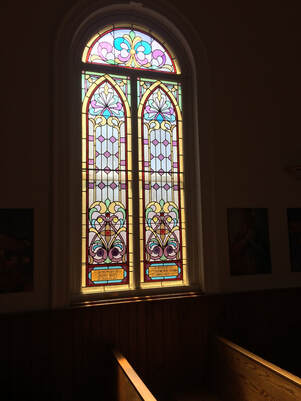 Blessings on this the third Sunday of the Easter Season. This week has been an eventful one, with some ups and some deeply tragic downs. One the upside, here in New Brunswick we are no doubt excited and relieved to hear that some early steps are now being taken to ease our Provinces restrictions due to the pandemic. While we know it will still be some time before things like public gatherings for worship will be able to resume, and that we all still need to be cautious in order to care for the vulnerable in our communities, it is still a welcome sign that we can certainly rejoice in. Here at St. Luke's Gondola Point, and all across the Diocese of Fredericton, we will be closely following the guidance of the Government regarding all our activities, and we encourage everyone to stay safe and look for ways to safely bless and care for our neighbours. Of course on the downside, our hearts ache at the tragic loss of life and senseless evil that took place in Nova Scotia last weekend. Our prayers are with all those who are grieving and suffering, and along with the rest of our Country we also "mourn with those who mourn" (Romans 12:15). We know that no matter what may come our way in the days and weeks ahead, the Risen Lord Jesus remains with us whether we can feel His presence or not. May our hearts be kindled today by this hope, and help us to share His peace. Our service of Morning Prayer and Bulletin for this week can be found here: Our three songs this morning can be found here: and our sermon this week can be found in another post on our St. Luke's GP Blog: God bless, and have a good week.
-Rev. Rob Scripture Readings: Acts 2:14a, 22–32 | Psalm 16 | 1 Peter 1:3–9 | John 20:19–31
“This Jesus God raised up, and of that all of us are witnesses.” In this brief sentence from the book of Acts, St. Peter actually offers us an excellent account of what it means to be the Church: that is, to be a community of witnesses in the world of God’s raising up of Jesus. There are of course many things we do as the Church, many worthwhile and essential activities that Christians regularly take part in, such as worship, prayer, compassionate service, fellowship, and so on. But all of these activities, all these ‘things we do’ as the people of God find their deep unity and purpose just here: in forming us to be witnesses of the resurrection of Christ, and the new creation the Living God is bringing about in Him. From the day of Pentecost, when St. Peter first uttered these words, all the way to today, the Christian Church exists in order to bear witness. Its more than what we do, it is really who we are. But what does it mean for us to be this kind of a witness? One helpful way to unpack this might be to compare the difference between a ‘witness’ and a ‘bystander’. At a basic level, to be a witness means to testify… to tell the truth about something that one has come to know. And in so doing, their own story gets tied in and tangled up with this wider story. What they have experienced and come to know has made an impact on their life, and they are now compelled to share it as truthfully as they can. A bystander, on the other hand, may have shared the very same experiences, may have seen and heard the very same things as our ‘witnesses’, and yet for whatever reason the event does not take hold of them in the same fashion. For the bystander, it all remains a private experience. It may end up being a profound, disturbing, or inspiring experience, to be sure, but they are not compelled to share in, and share, what has happened with others, and so it remains an isolated and incidental part of their history. In short, unlike the ‘witness’, the ‘bystander’ remains outside of the story. This is a very rough sketch, I know, but I believe it can help us clarify something that has often been muddied in our society. By and large we have become used to thinking about and living our faith in essentially private ways, and the idea of being more ‘public’ with it makes many deeply uncomfortable. Images immediately come to mind of pushy, arrogant, and self-righteous know-it-all's, or those who use religion for political or selfish gain. Clearly, this kind of ‘public faith’ is miles away from the Way of Jesus, and thankfully there are much more faithful ways to live Christian-ly in the world. But as comfortable as we might feel living as spiritual bystanders, to follow the Way of Jesus Christ is to become a witness: one whose whole life is draw into the Story of what God has done in raising Jesus Christ from the grave, and who is tasked with making this known to the world as truthfully as they can. Our Scripture readings this morning talk much about believing and faith, and the narratives (both from Acts and John’s Gospel) tell of the early disciple’s first steps as a witnessing community. In our Gospel reading the story picks up on Easter evening. Just before our reading, in verse 18, we can find the very first account of someone being sent as a witness with the Good News: “Mary Magdalene went and announced to the disciples, ‘I have seen the Lord’; and she told them that he had said these things to her.” And in response… they gathered together and locked their doors in fear of persecution. Maybe not the most courageous or noble first step, I know, but that didn’t stop the Lord’s world-changing plans for them. And maybe we can identify with their fear and hesitancy too. Maybe we can easily see ourselves following their early ‘lead’. But the same Lord who transformed these fear-filled disciples back then remains the Lord of the Church today, and that should give us hope. For rather than leave His people to fend for themselves, the Risen Lord arrives. The Good News they’d hear from Mary is suddenly present in their midst: Jesus really has risen!… and although that means re-imagining the entire story of the world, they come to believe and know this to be true. Well, most of them did at least. Poor Thomas missed the party that night, and now he finds all his friends backing up Mary’s story… all claiming to have seen their beloved master Jesus alive again. But rather than take them at their word, Thomas responds by demanding the same experience the rest of them all had: to see for himself the presence of the Risen Lord. Despite the best attempts of the rest of the witnessing disciples, Thomas remains resolute in his resistance. But then, just as before, when they had all gathered together, the Risen Lord shows up and graciously comes to Thomas, inviting him to stop doubting and believe. Christ does not turn Thomas away for not believing until he had seen Him raised for himself, but along with Thomas we are told: “Blessed are those who have not seen and yet have come to believe.” Now turning to our reading from Acts, we hear a portion of St. Peter’s speech to the crowds gathered in Jerusalem for the feast of Pentecost. This is the same St. Peter who, not long before, was resistant to Mary’s message until the Risen Lord Himself appeared among them alive. This is the same St. Peter who, along with the others disciples, could not convince Thomas, one of their own number, that the Good News was true… until the Lord again showed up and stirred up Thomas’ faith. This same St. Peter now stands in front of thousands of faithful Jews, from all over the ancient world, and tells them the truth about Jesus. Empowered by the Holy Spirit, he tells them the story of how the One they had crucified was truly their Messiah, and that God had raised Him from the dead, and raised Him up in glory. This time we are told, if we read a bit further, that about three thousand people believed (verse 41), and stepped into the Church’s story with their lives as well. From there, the Church continued to grow and spread all through the world, as more and more people believed the Good News of the Risen Lord, and shared what they had come to believe and know with their world. There are just a few points I think I should highlight before drawing to a close. First of all, witnessing to the reality of the resurrection is not simply about sharing information, but rather of living in such a way that its truth becomes believable. We can say all the ‘right things’, but if our choices and actions and lives don’t line up, we are undermining the message we have all been entrusted to share. On the other hand, if our lives are in line with the world-changing reality of Christ’s resurrection, then our words will be too, and will also likely be needed to help others understand why we now live the way we do. It’s not a question of prioritizing resurrection ‘words’ or ‘deeds’; they both belong together, like so many things in life. Second, though we’re all called to be witnesses, to tell the truth about the Risen Lord through our entire lives, it is ultimately God who makes use of our witness to enable people to believe. As our Scripture texts today attest, faith is not always a straightforward path, and those that eventually believe may still have a long journey ahead. The disciples first doubted Mary, then Thomas doubted the other disciples, but the Risen Christ still used their faithful witness. True faith cannot be forced, for it is a gift from God, and each of us may arrive at that gift and receive it in a different way. After all, how did we first come to the Church? We each have a unique story, but in some way each of us responded to the message of Jesus Christ as it was expressed and lived out by others in our lives. We believed their witness, and joined in this Story along with them, and have each grown and learned a whole lot along the way. Though we did not see the Risen Lord with our own eyes as the first disciples did… we believed their testimony, which has been the story of the Church’s life throughout the centuries. And now we too are witnesses… our lives now have this purpose: to point to the truth of Jesus’ resurrection, and to help others to share in the New Creation that the Living God is bringing about through Him. And finally, for most of us this won’t mean standing up in front of a crowd of thousands… but what about a crowd of one… or two, or three? Honestly, what would it look like to be faithful to our calling to be witnesses of the resurrection of Jesus Christ first of all in our own homes? With our next-door neighbours? Our closest friends? Our spouses? Ourselves?It certainly doesn’t look like being pushy, or arrogant, self-righteous, manipulative, or defensive… but what might it look like to live as those who believe the Good News of Jesus? Patience? Forgiveness? Asking for forgiveness? Gentleness? Courage? Hope? Trust? In the resurrection of Jesus Christ, God is bringing about His New Creation, and He offers us His Holy Spirit to bring it to life in us. Like St. Peter and all the rest, though we stumble, and struggle along the way, our Risen Lord is still with us as we seek to make Him known. So may we continue to believe, and hold fast to the hope we’ve been given, and may we discover anew what it means to take part in this Story with our whole lives… so that our world “may come to believe that Jesus is the Messiah, the Son of God, and that through believing” they too “may have life in his name.” Amen.
Songs for Easter II - April 19Alleluia, Christ is Risen! As we worship and pray on this most holy of days, celebrating the resurrection of Jesus Christ and the beginning of God's New Creation, may we be filled with the joy that comes from knowing that God's love has conquered sin and death, and set us free for newness of life. Our order of service for Morning Prayer can be found here. Instead of a sermon again this week, I wanted to share with you all a poem I wrote a while ago, which you can find at the bottom of this post. In terms of teaching this week, I commend to you this free EBook by N.T. Wright: Resurrection and the Renewal of Creation (only 15 pages in length). "In this free Ebook, Professor Wright demonstrates how the common understanding of Jesus, his death, and the afterlife, is the product of a different philosophy than what the biblical writers present. He then unpacks a number of key passages from the New Testament to recast our understanding of resurrection firmly into the overarching narrative of the Bible." You can find this EBook here. This week's bulletin (for news and prayer list) can be found here. And finally, we have music to go along with our service this week! You can find audio tracks for our three hymns below. Other online Holy Week resources are available through the Diocesan Website, and can be found here. Many blessings this Easter Day, in the name of the Risen Lord Jesus Christ! -Rev. Rob _____________________________________ At oneIn darkness there we stood alone
Against the breaking of the dawn We dared not hope the day would come Contented in the shadow’s gloom Our eyes were dim, our hearing gone No arms embraced, we stood alone In darkness there, our prison strong Without a hope, we stood alone Alone we stood, without recourse Singled out before Your throne No excuses, no remorse No way to hide, we stood alone But lo, what mystery? What grace? The Judge of all judged in our place!? You bore our burden, took our shame Endured alone our stain and blame You stood alone and offered up Like broken bread and poured out cup Your life upon the altar laid A priest and sacrifice in one You stood alone, but with Your blood You cleansed our crimson covered hands And brought us near, and raised us up Now peace we owe to You alone You stood alone while others fled Before the foe that held us tight No others dared to take Your side No others joined You in the fight From cradle to that cruel tree You harried hard the enemy And died with sinners at Your side Before our eyes You hung alone In darkness there You were alone Swallowed by the shadow’s gloom And with our futile, fleeting hope We buried You beneath the stone In bitterness, in sorrow we At last could but concede defeat And tremble weakly in the night The day had failed. We stood alone. But in that darkest, blackest day That moment of our world’s despair The morning dawned! The shadows fled! Destruction fell on Hades’ head! The love that bound Father to Son Could not at last be overcome And we, the captives freed from hell Forevermore with You may dwell Never again to stand alone For in You now we are at one With Father, Holy Ghost, and Son Forever more we are at one One of the resources that our Diocese has made available for use this Holy Week is a special "At Home" order of service for an Easter Vigil, prepared by the Diocese of Brandon. The order itself recommends its use "after dinner, but before dessert", once Easter has officially begun.
I commend this service to you, and hope that it may help us as a Parish celebrate the victory of God over sin and death, and welcome the joy of Christ's resurrection. Blessings, -Rev. Rob This video walks us through the 14 Stations of the Cross paintings by Fr. Sieger Köder, which depict various scenes from the story of Christ's Crucifixion. It is meant to help us prepare for a prayerful experience of Christ's Passion, with periods of both music and silence along the way. The video is about 25 minutes in length.
Good Friday Gospel Passage: John 18:1-19:42. A Hymn for this Maundy Thursday.
Abide With Me, #386 in Common Praise. They went to a place called Gethsemane; and he said to his disciples, “Sit here while I pray.” He took with him Peter and James and John, and began to be distressed and agitated. And he said to them, “I am deeply grieved, even to death; remain here, and keep awake.” And going a little farther, he threw himself on the ground and prayed that, if it were possible, the hour might pass from him. He said, “Abba, Father, for you all things are possible; remove this cup from me; yet, not what I want, but what you want.” (Mark 14:32-36)
________________________ Maundy Thursday is upon us, the night we remember and relive Christ’s final moments with His disciples before he was taken from them in order to be crucified. We remember His celebration of the Passover with them: Israel’s sacred commemoration of their ancestor’s deliverance from Egyptian slavery, as the Lord God struck down the firstborn of their captors. We remember how Jesus transformed their understanding of this already sacred meal into more than a commemoration of the Living God’s saving acts in the distant past, and that now, through His own body which would soon be broken and His own blood which was soon to be shed, the Living God was again about to deliver His people… and indeed, open the doorway for the rescue of all peoples. Tonight, we Christians remember with reverent joy the sacred gift of Holy Communion; God’s gracious self-offering life and love, made accessible to us in faith through the body and blood of God’s Son. We are used to sharing this gift together, but tonight we remember this Holy Communion without being able to eat and drink. Our true Communion continues, yet tonight we taste the loss. We remember too the way of humility and service Jesus opens for us: as He took on the role of a lowly servant and washed the feet of His disciples. In this surprising act Jesus reveals that the Glory of the Lord and the nature of His greatness is not shared in by amassing power and influence for ourselves, but in laying aside our own selfish ways and stooping down to serve each other… caring for those around us in simplicity and sincerity, and seeking their honour and well-being instead of chasing after our own. Tonight, we Christians would remember this call to true godliness through the washing of each other’s feet, but tonight we are unable to re-enact this sign of our calling with our wider family of faith. Our true, humble and holy calling continues, but tonight we cannot feel its cleansing touch. Tonight we remember the New Commandment that Christ gave to His disciples: revealing the depths of what it means to live as God’s children in this world. The fulfillment of the whole Divine Law and Covenant comes to its head as Jesus tells us His followers “I give you a new commandment, that you love one another. Just as I have loved you, you also should love one another. By this everyone will know that you are my disciples, if you have love for one another.” (John 13:34-35). Tonight, we Christians remember that this is always to be at the heart of our life together in the Church, and that more than anything else that might define who we are, we are called to love as Christ Jesus has first loved us. But tonight we struggle with how to love each other at a distance. Tonight we long for the shared life of love that is the Church, and though we remain united in our love for one another through the Spirit, we are still pained by our bodily separations. Our true community of love remains, yet we feel cut off from each other. This is certainly not the Maundy Thursday celebration that we are used to. This has not been, nor likely will be, the kind of Holy Week that we remember and cherish. But it is the one which we have been given, and which still invites us to take part in the sacred story of Jesus Christ, who tonight shares with us something we might perhaps rather prefer to forget. For tonight in the Garden, praying alone, Jesus suffers with us. He takes upon Himself all the anguish and fears and sorrows of His people, and draws it all into Himself before His merciful Father. In His prayer that this dreadful cup might pass, “yet not what I want, but what You want”, Christ faithfully takes hold of all of our sufferings and makes them His own. His true act of self-offering also means sharing in our losses, our frustrations, our separations, and our sorrows. Tonight, we remember the Gift of Holy Communion, the Way of Humble Service, the Commandment to Love each other, and Christ’s Suffering for and with us. Tonight we Christians remember that, whatever trials or losses or pain that we might be facing, our Lord Jesus faces it with us as well. He endures and tastes it along with us in all its bitterness, and bears it on our behalf to bring about our deliverance. Tonight, may we remember that Christ is with us even now. And may we receive from Him all that He has to offer us this Holy Week. Amen. Today is a strange day. Today marks the beginning of Holy Week, the sacred time in the life of the Church where we recall and enter into again the part of the story which is truly at the heart of our faith: the suffering and crucifixion of Jesus Christ, the Son of God, and His resurrection from the dead for the sake of God's world. Specifically, today is Palm Sunday & Passion Sunday, where the Church remembers our Lord's joyful reception into Jerusalem, only to have those same voices turn violent; rejecting and condemning Him to death only a few days later. It is a strange day, where the tensions and expectations in the Gospels begin to come to a head, leading us on to the climax of God's strange and world-changing love story: rescuing His broken world by being broken for it Himself on a cross. It is a strange, wonderful story we are a part of, after all. But we especially feel the strangeness of today because we are unable to gather together. We are unable to retell this story as the people of God gathered, and this painful reality strikes us, and should strike us, as a deep loss... to be acknowledged and grieved. Yes, there are ways we continue to worship, even as we are apart, and we know that Jesus is with us even now, and that we are still united together through the Holy Spirit... yet our inability to be together in person at this sacred time adds an element of strangeness that we cannot ignore. Yet as the world around us has changed... as everything we have known has begun to suddenly feel strange to us... let us remember this week the Holy Story that remains at the heart of our existence. Let us mark the sacred time of Holy Week in this strange new time we are facing, with a sense of loss and feeling out of place, but also in anticipation of our future joyful reunion together. For it is my intention that at St. Luke's Gondola Point, we will celebrate Holy Week again as a Parish as soon as we are able to gather together in person in our Church. This week, our Diocese will be making available several online reflections, resources and opportunities to worship and celebrate Holy Week, and I would encourage you to make use of them as best you can. I will also be posting some resources here throughout the week as well. For today, our Order of Service for Palm Sunday & Passion Sunday has no sermon, but instead it has much more Scripture to be heard than on a typical Sunday. The first Gospel reading will recount Christ's arrival in Jerusalem (Matthew 21:1-11), and the second Gospel reading tells in full Matthew's account of the Crucifixion of Jesus Christ (Matthew 26:14-27:66). I have included here both the text of the Gospel (NRSV), as well as an audio recording (found below) of the Gospel being read by me. This week's bulletin can also be found here. As we listen closely to God's word to us this morning, may we be reminded that despite all of our uncertainty, and loss, and longing, we find our faith and hope renewed and grounded in this strange and wonderful and world-changing story of God's self-giving love. May the Holy Spirit give us ears to hear his word to us today. Many blessings in Christ, Rev. Rob The Gospel of Matthew 26:14-27:66 Audio Recording
|
Rev. RObRev. Rob serves as the Priest-in-Charge at St. Luke's Gondola Point, and as the School Chaplain at Rothesay Netherwood School Archives
June 2024
Categories
All
|
||||||||
|
5 Quispamsis Road, Quispamsis NB, E2E 1M2
Mail to: 12 Quispamsis Road, Quispamsis NB E2E 1M2 |
Contact Us
Parish Phone: 506-847-3670 | www.stlukesgp.ca | www.facebook.com/StLukesGP/ Rev. Rob: 506-608-1772 | [email protected] |
Proudly powered by Weebly

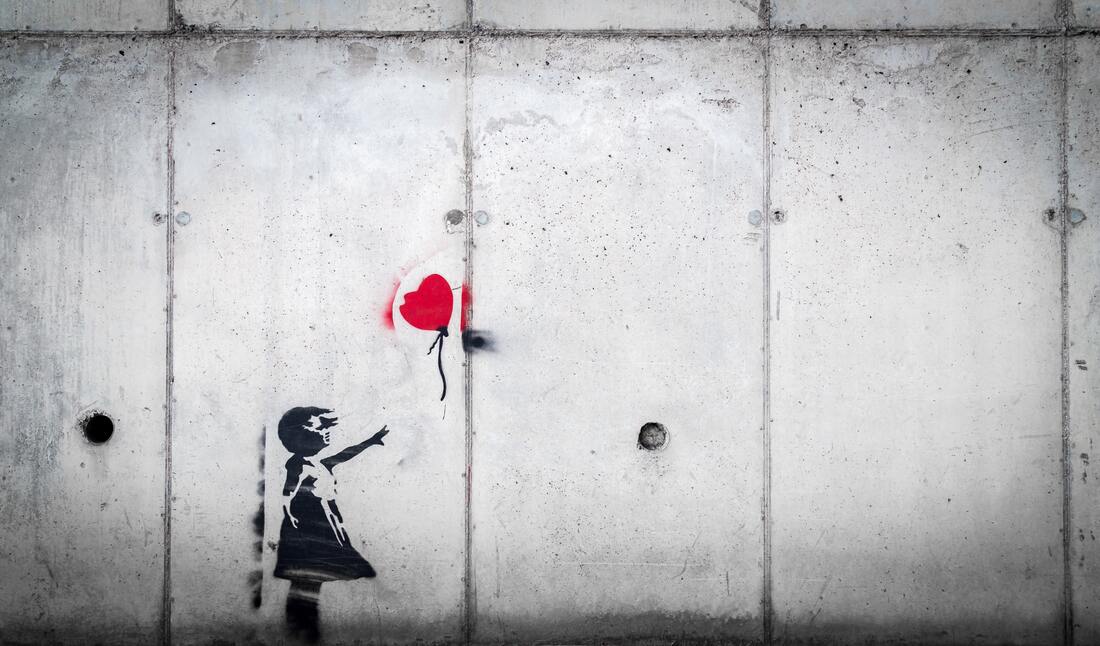
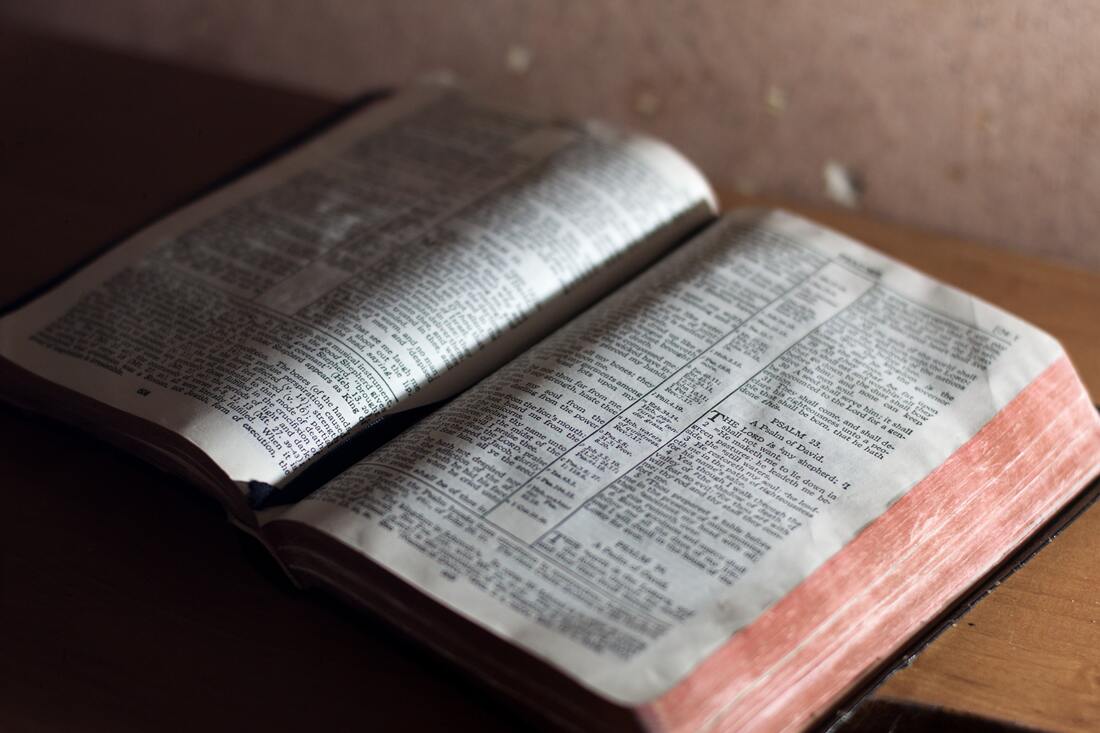
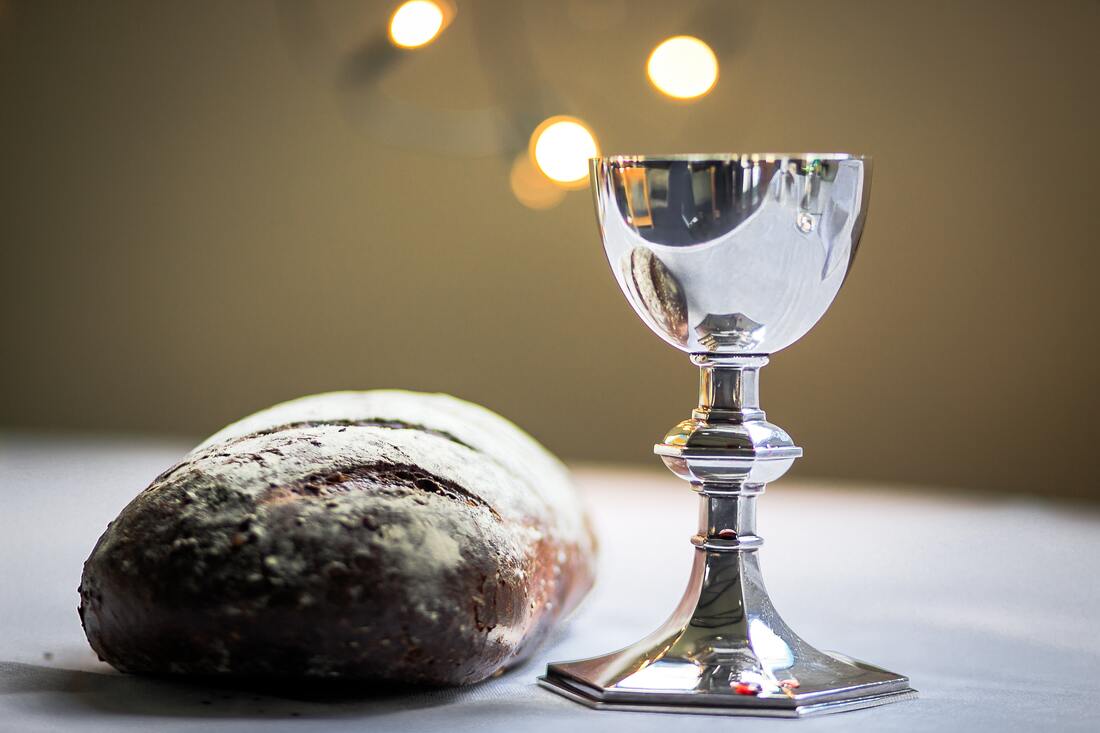

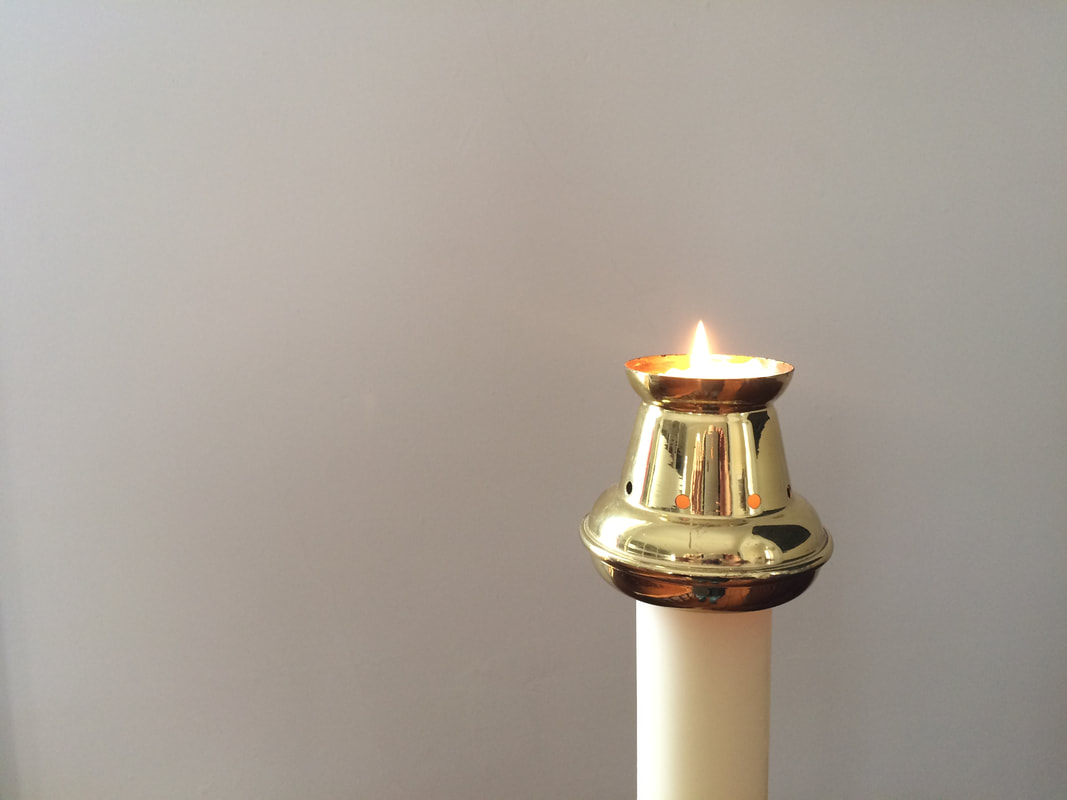
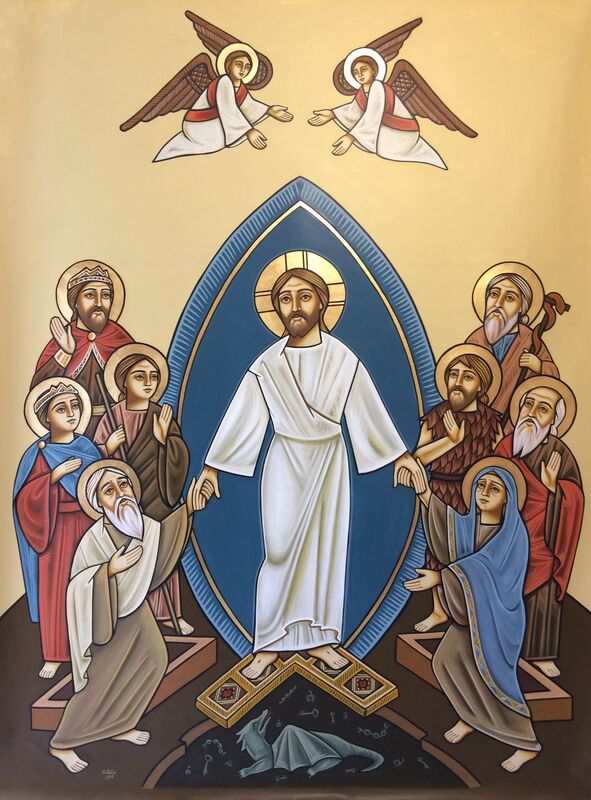
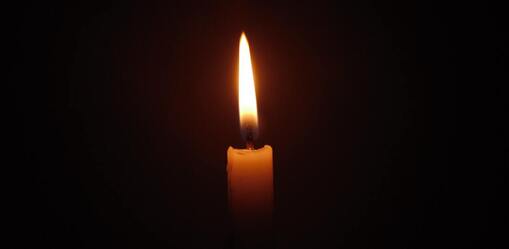
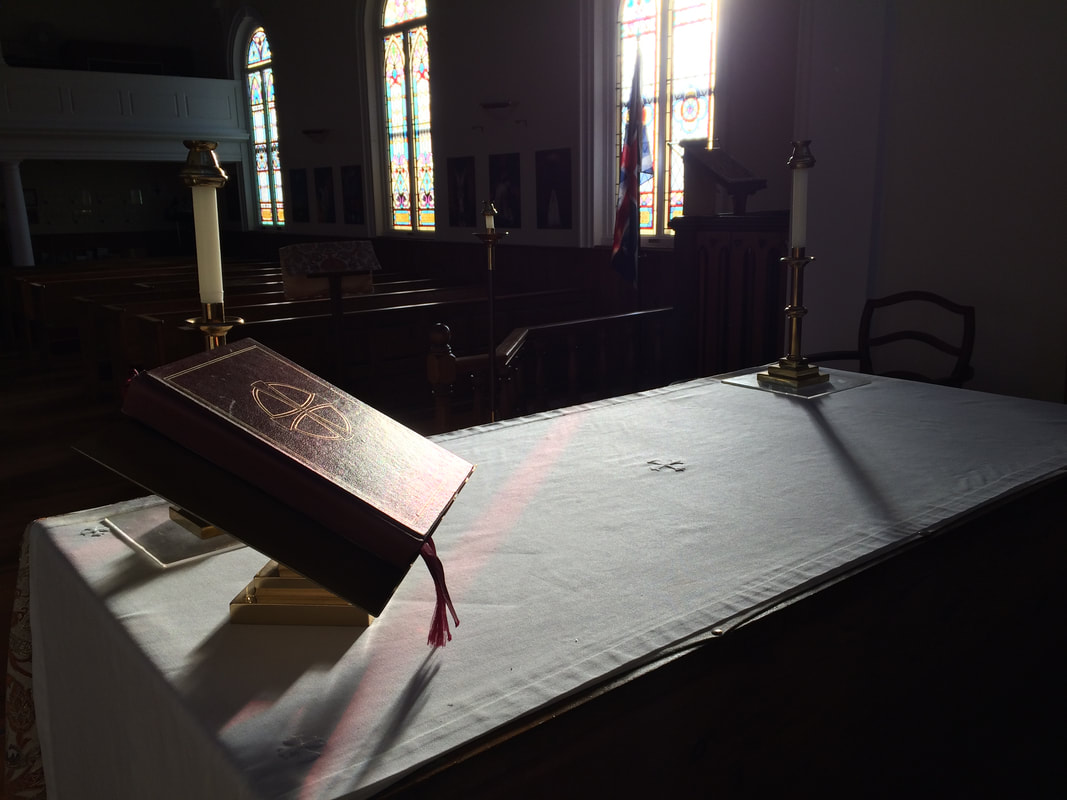
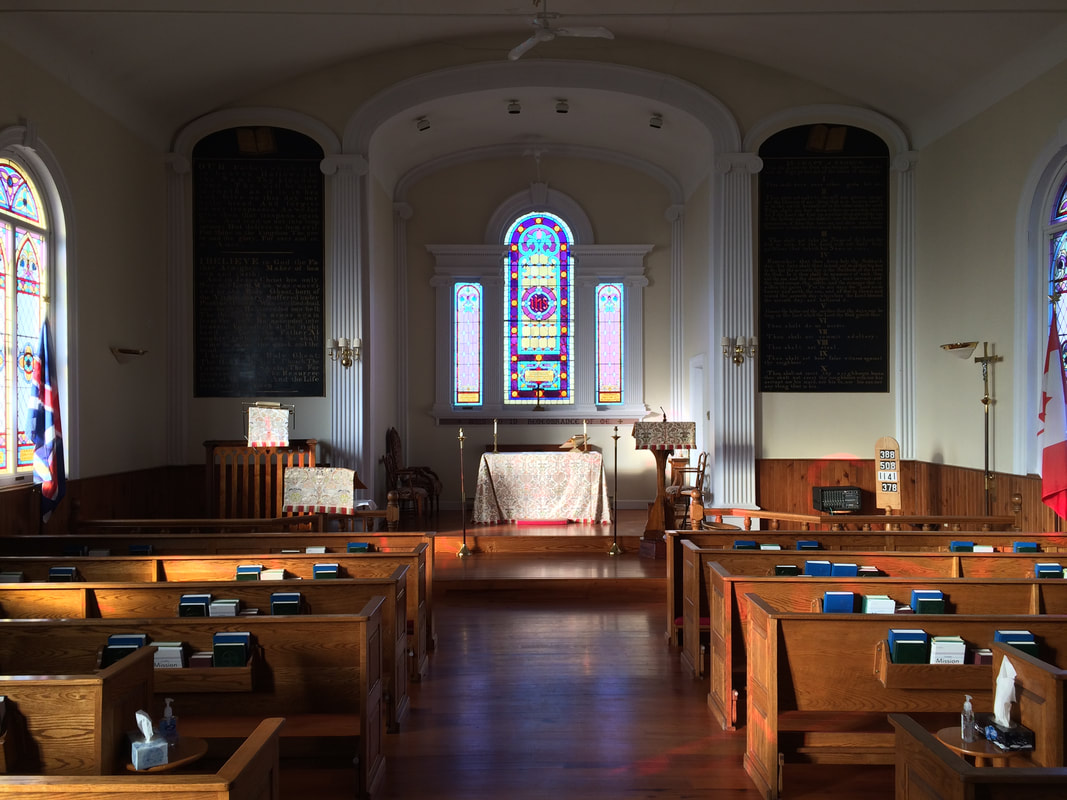
 RSS Feed
RSS Feed
